Andrew Miller in Cricinfo
They came to offer clarity on
Kevin Pietersen, not to praise him. But they left without achieving either.
To be fair to
Andrew Strauss and
Tom Harrison, the incoming ECB director and chief executive, they tried so hard to be upfront. They did the media rounds with great diligence - upstairs, downstairs, inside and out - tirelessly traversing the Lord's pavilion to repeat themselves to TV, radio, digital and written press ad nauseam.
They presaged their words with woolly preambles about how sorry they were that Peter Moores had been shafted, and how excited they were about their organisation's new beginnings, and how now was the time to build a better future for English cricket.
But no matter how passionately they expressed their platitudes, or how multi-layered they made their appeals for a reassessment of the team's priorities, the white noise of corporate bullshit was precisely the last thing that we, the working media, and by extension, them, the disenfranchised masses so odiously dismissed by the previous regime as being "outside cricket", needed to hear.
Strauss and Harrison tried so desperately to move the issue along, but they might as well have been Ben Raine and Jigar Naik for all the plausible resistance they offered in the face of Pietersen's onslaught. And the net result was that today's grand unveiling was a desperate and troubling disappointment.
Fifteen months ago, a culture of silence enveloped the ECB after Paul Downton's catastrophic decision to sack Pietersen, accompanied by a cryptic press release, the contents of which could not be expanded upon because of an accompanying confidentiality agreement:
"We have decided the time is right to look to the future and start to rebuild not only the team but also team ethic and philosophy."
Leaving aside the energetic posturing and magnanimous looking-in-the-eye that Strauss and Harrison managed in the ECB's second attempt to set the record straight,
today's utterancescould feel every bit as cold, flat and insulting to many cricket followers when laid out for digestion in tomorrow's papers.
"We've offered clarity today on the ECB position with respect to KP in the short- to medium-term," said Harrison. "We are drawing a line under it to say this is where we're going."
Really? Pietersen has not been sacked, but he won't be selected, and Alastair Cook, incidentally, has the full and unequivocal backing of the board. He probably deserves it after a year in which the old regime used him as a human shield, but that doesn't even begin to scratch the surface of the issues that demand to be addressed.
The ECB continue to believe that the primary issue at stake is a breakdown in trust between themselves and Pietersen. They could not be more wrong.
The more frightening breakdown is the one between the ECB and its once-devoted public, a hardy and by-and-large educated breed, who stuck with the team through thin and thinner in the 1980s and 90s but whose faith has been eroded by every wrong decision imaginable.
On Monday afternoon, cricket stood still as a Division Two County Championship fixture involving a team that has not won a match for two years became the most talked-about live event in the country.

Andrew Strauss smiles through a media interrogation © Getty Images
By Tuesday morning, the new director of England cricket was telling the public to move along, there's nothing to see here. Such a stance is an outrage. Leaving aside the characters involved - and that, clearly, has not been possible to do - what sort of a perverse world does English cricket inhabit if the hyper-promotion of a match involving its most endangered county is suddenly deemed a bad thing?
Pietersen's decision to turn his back on the IPL's group stages was, admittedly, made easier by the less-than-favourable terms he had been offered by Sunrisers Hyderabad. But he was merely responding to the apparent olive branch he had been offered by the incoming ECB chairman, Colin Graves.
Pietersen has fulfilled his side of the bargain, sometimes thrillingly, and as a by-product he has dragged stupendous levels of interest to every ground he has visited, not least a crowd of 2,000 for a non-first-class warm-up in The Parks. As Alec Stewart, his director of cricket at Surrey, stated in very sanguine fashion on Surrey TV, "Kevin is very entitled to feel let down."
And so is the rest of England's cricket family, for want of a better catch-all term. Harrison, to be fair, recognises the urgent need for the ECB to re-engage with its drifting public, to enhance participation and, tellingly, to stop "patronising" those who expect better from their sport.
But there are better ways to go about rebuilding those bridges than estranging the one man about whom everyone in the sport (and even those outside it) holds an opinion.
It would help if the new management team could avoid coating their explanations in precisely the sort of boardroom jargon that most white-collar sports lovers seek to escape when attending a cricket match
It would also help if the new management team could avoid coating their explanations in precisely the sort of boardroom jargon that most white-collar sports lovers seek to escape when attending a cricket match.
"It's important to have a successful team to address participation issues but there are numerous ways participation can be affected," Harrison said. "One of the reasons we've taken this decision is to bring clarity and stability to the England set-up."
Of course, it's not impossible that the ECB are right, that - much like the Conservative Party's attitude to the economy - steering a firm course through the choppy waters is the only way to reach that long-promised new beginning.
Strauss's insistence that Joe Root was ready to take on greater responsibility chimed with a sense that, even in defeat, there's a hardcore of campaigners being forged within this new England team. If, by some miracle, they can extend their 14-year unbeaten run in home Ashes series this summer, then all sins will be forgiven.
And Strauss, let's not forget, picked up the pieces after the first KP-Moores debacle in 2009 and returned the urn by the end of that summer.
But the invisibility of, and the indifference to, the current England team is frightening. Moeen Ali, the break-out star of last year's Test series win against India, failed even to receive a BBC Sports Personality of the Year nomination, when Lizzy Yarnold (with the greatest respect to the skeleton bob fraternity) did.
And that's the other great sadness of the treatment of KP. With the exception of Ian Bell, who played a walk-on role in the greatest Ashes summer of them all, Pietersen is the last of the free-to-air heroes of 2005.
Harrison insisted it was important not to link his box-office marketability with that fact, but who could have witnessed Pietersen's 355 not out at The Oval this week without winding the mind back to that ludicrous assault on Brett Lee ten years ago? The ECB are expecting England's fans to unmake their memories for the betterment of the here-and-now. History, unfortunately, doesn't work like that.
It is, of course, possible that the furious masses railing on Twitter against the ECB's actions are not as representative of the national mood as they might like to think - last week's General Election set a precedent in that respect, a point that one or two members of the media have picked up on this week.
But if they are not representative, then why not? There is plenty to be furious about in English cricket at present, from the paucity of recent results, to the over-coaching of fast bowlers, to the decline in the recreational game, to the lack of transparency in the sport's global governance.
The ECB say they want to set out a five-year plan for the reinvigoration of the sport. But has anyone stopped to ask for whom is it making these plans? The general public have yet to be invited back into the fold. Or if they have, the message has been lost in the doublespeak.
-----
Strauss' Ishoos
Simon Barnes in Cricinfo
"Ishoos".
It was always going to come down to them. Because England cricket has become a subplot in the
Kevin Pietersen Story and with Pietersen, there are always "ishoos". He has "ishoos", and as a result, everybody he touches has "ishoos" with him.
Andrew Strauss gave his first public performance as England's new director of cricket on Tuesday and
revealed that Pietersen was not coming back to play for the England "in the short-term". Meaning not this summer. That's just to make it sound a bit less apocalyptic than his sacking last year.
So to clarify: Pietersen has been sacked as an England cricket player, and now he has been unsacked. "He's not barred from the side," Strauss said on Tuesday. It's just that he's not been selected. Which is quite a different matter. He could be reselected again at any time. That's disregarding the small point that he's not going to be.
And the reason for this? "Massive trust ishoos." Which is interesting enough. Though one point that Strauss didn't make was that he was not crazy enough to commence his stint in charge of England cricket by building his team round a 34-year-old. That would be a barmy notion even in an "ishoo"-free scenario.
We've all admired Pietersen's timing over the years. It's one of those natural instincts. If there is the remotest possibility of making trouble, or of finding trouble and making it worse, or of taking on a kerfuffle and turning it into a first-class row, then KP's yer man.
Strauss's job is England v New Zealand and then England v Australia, and he has made his decision about that. As yet, it's neither the right decision nor the wrong decision
So while all this was going on at Lord's, Pietersen was scoring loony amounts of runs for Surrey. He had been told to find a county and score runs if he wanted to return to the England team: you can't say that a triple-century, to which he was adding while Strauss's problem with trust issues was being coyly half-revealed to the public, doesn't add another pint of bat's blood to the witch's cauldron.
I suppose England did. After all, they picked him. Back then he was a South African cricketer with a reputation for mixing trouble and talent in more or less equal quantities. These days he's an ex-England player whose talent for trouble has outstripped his talent for talent.
It is a basic given of team management that any player, if sufficiently talented, can be accommodated in any team. If he makes the team better, it is the team's job to make it work. It's also the individual's job to fit in. So the point is that everybody has failed here. And now it seems that everybody has issues with that failure.
Poor Kevin. It's hard not to feel sorry for an egomaniac when people stop humouring him. Pietersen always wanted to be treated differently to everyone else: now he has been. First he was the only player in the history of England cricket ever to be sacked, and now he's the only England player ever to be unsacked and simultaneously unselected.
Perhaps Strauss's predecessor, Paul Downton - though the titles and the roles are subtly different - was wrong to make an issue of sacking Pietersen. Certainly it was a decision that made a sporting problem into a moral issue. And that put intolerable pressure on the captain, Alastair Cook.
Cook was forced to play the good boy, like Ralph in Lord of the Flies, while Pietersen revelled in his role as bad Jack. And while that makes a fine morality tale worthy of being studied by A level students across the cricketing world, it didn't help England win cricket matches. In fact, it's created a sorry mess.
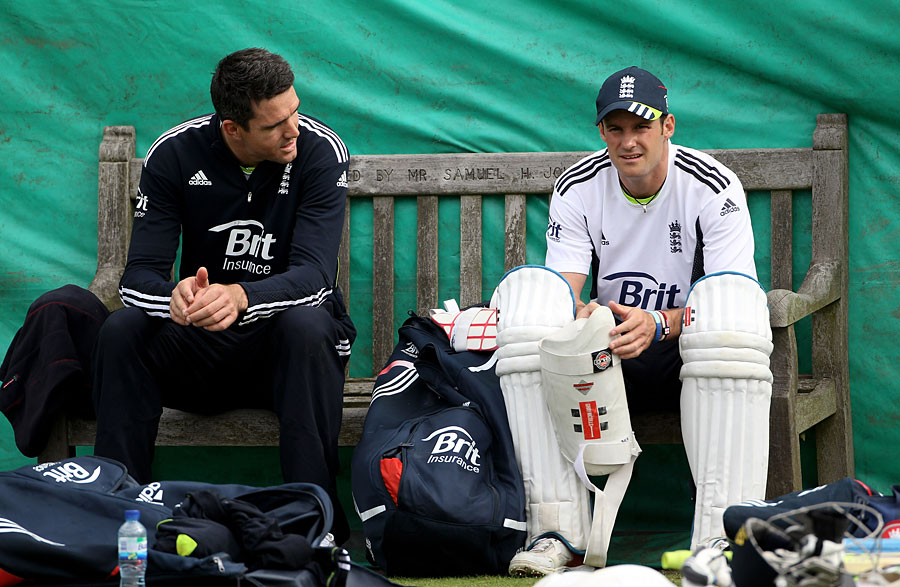
Kevin Pietersen and Andrew Strauss in happier times © Getty Images
It's not in Strauss's power to undo that. He can't wind back the clock to the point when England fell apart in Australia, or to when the England players started giggling disloyally over the wounding fake-Twitter account that lampooned Pietersen, or to when Pietersen started sending derogatory texts about his own team to the South African cricketers.
No. By accepting the job Strauss has accepted that he has to deal with a few "ishoos". And though he dealt strongly and confidently with the England Test captaincy - Cook uber alles - and with the one-day captaincy - Eoin Morgan's your man - and with the question of the coach - Jason Gillespie is "one of the candidates ... I want to listen to their philosophy of cricket" - this was a day when the old scene-stealer stole the scene once again.
Pietersen finished with 355 not out for Surrey on Tuesday: a mischief-maker's delight. That stupendous score opens a whole new can of issues. Sometimes it seems that the whole world is united in trying to service Pietersen's personal myth: he was dropped half-a-dozen times on the way to that impressive total.
But Strauss's job is England v New Zealand and then England v Australia this summer, and he has made his decision about that. It's neither the right decision nor the wrong decision. It will be the right decision if England score lots of runs, especially Cook, and it will be wrong if they don't. It really is as simple - and as illogical - as that.
So there is Pietersen, playing the misunderstood innocent after producing what is possibly the nastiest and certainly the ghastliest book in the woeful history of ghosted sporting autobiographies, one in which score-settling was top of the agenda and love of cricket nowhere. If you choose to write a book like that you can expect people to have issues with it.
The real KP story is an enthralling tale about the nature of teams, the chemistry within them, when is a team not a team and at what point a nonpareil becomes an intolerable burden on resources. And that's all very well for us, but for Strauss, it's not about the moral agenda or the philosophy of sport.
For Strauss, it's a sporting "ishoo". He's made his decision: now he must pray that England have a decent summer and that Pietersen eases up a little on the triple-centuries. If those two things don't happen, there'll be more "ishoos" for us all to face in the autumn.
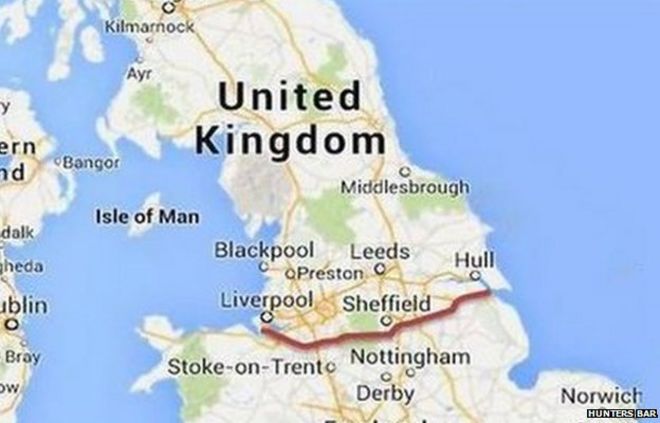



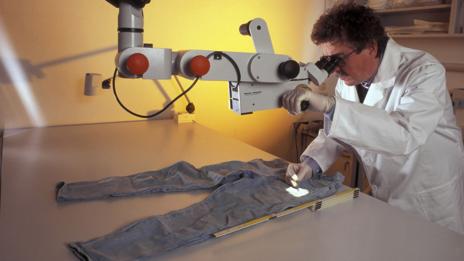

 Andrew Strauss smiles through a media interrogation © Getty Images
Andrew Strauss smiles through a media interrogation © Getty Images Kevin Pietersen and Andrew Strauss in happier times © Getty Images
Kevin Pietersen and Andrew Strauss in happier times © Getty Images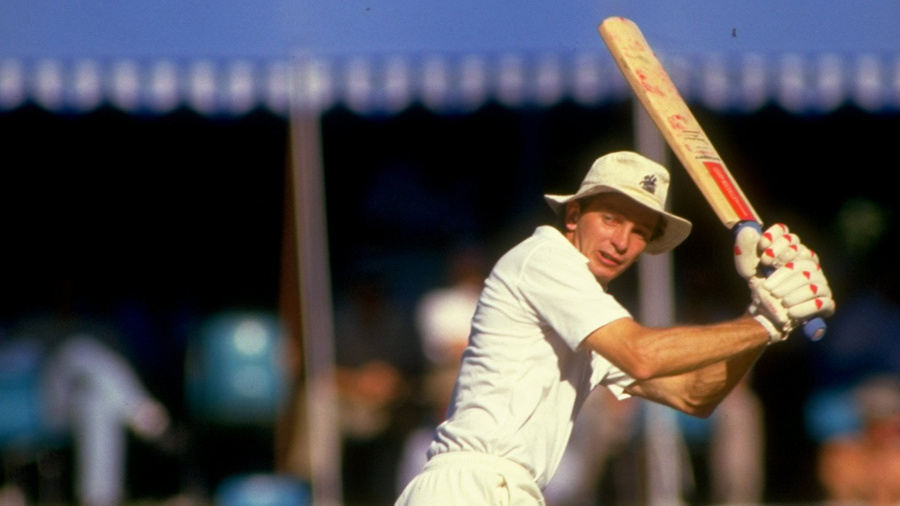 David Gower: poise, fragility and ineffable beauty © Getty Images
David Gower: poise, fragility and ineffable beauty © Getty Images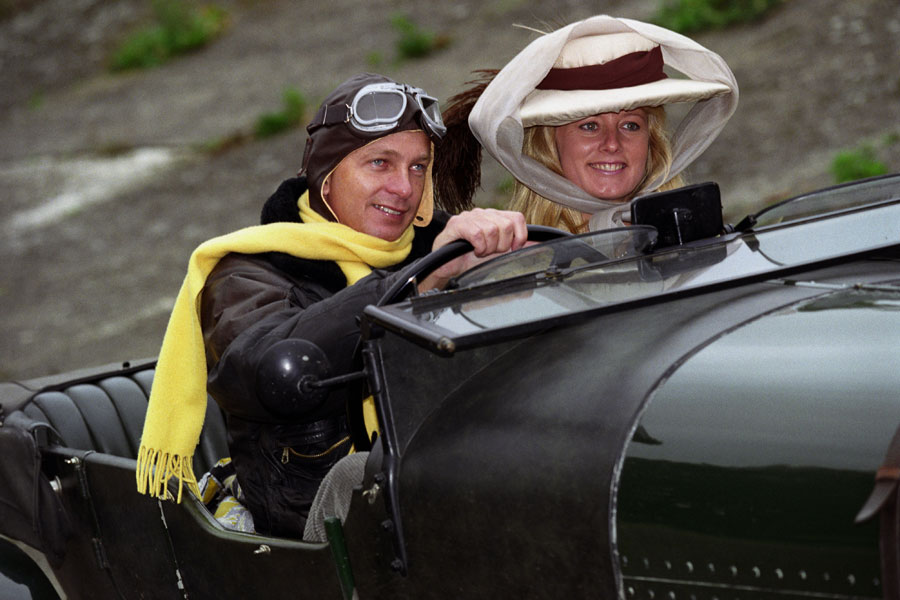 Gower, seen here with wife Thorunn, was at his mesmerising best against the Australians in 1985 © PA Photos
Gower, seen here with wife Thorunn, was at his mesmerising best against the Australians in 1985 © PA Photos